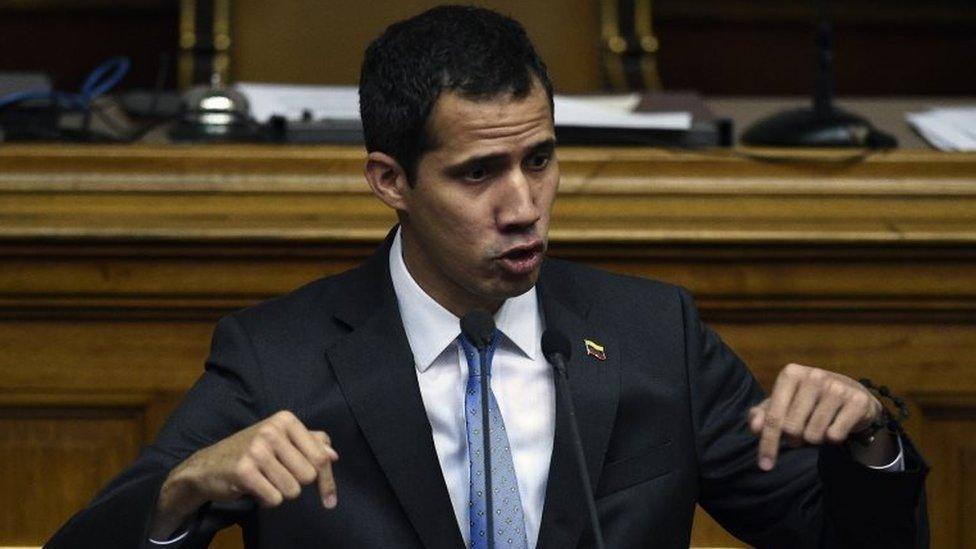Venezuelans receive first Red Cross aid amid crisis
- Published
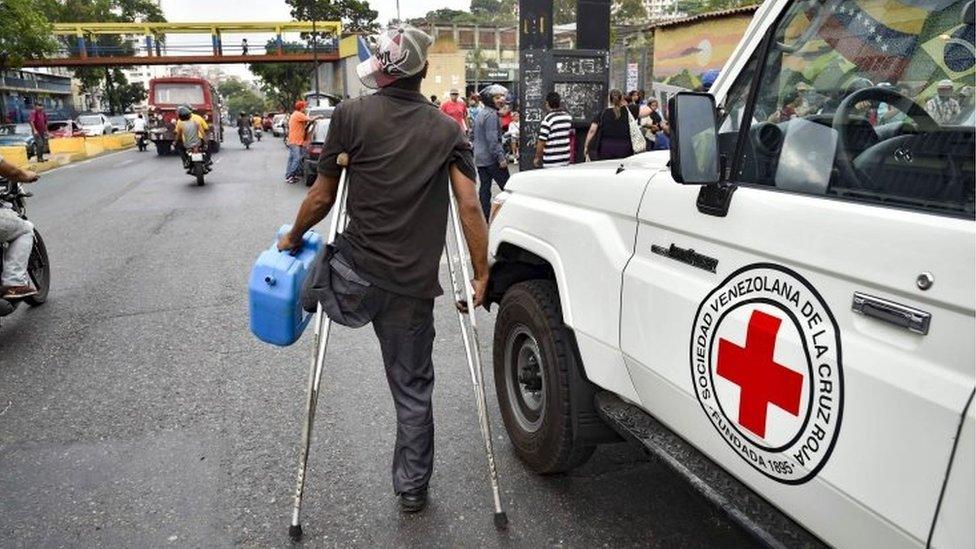
Shortages of drinking water mean water containers and purification tablets were in high demand
The first shipment of humanitarian assistance from the international Red Cross is being distributed in Venezuela after it arrived on Tuesday.
The socialist president had previously repeatedly denied the existence of a humanitarian crisis in Venezuela.
He had also blocked the delivery of aid from the US and other countries, saying it was part of "an imperialist plot".
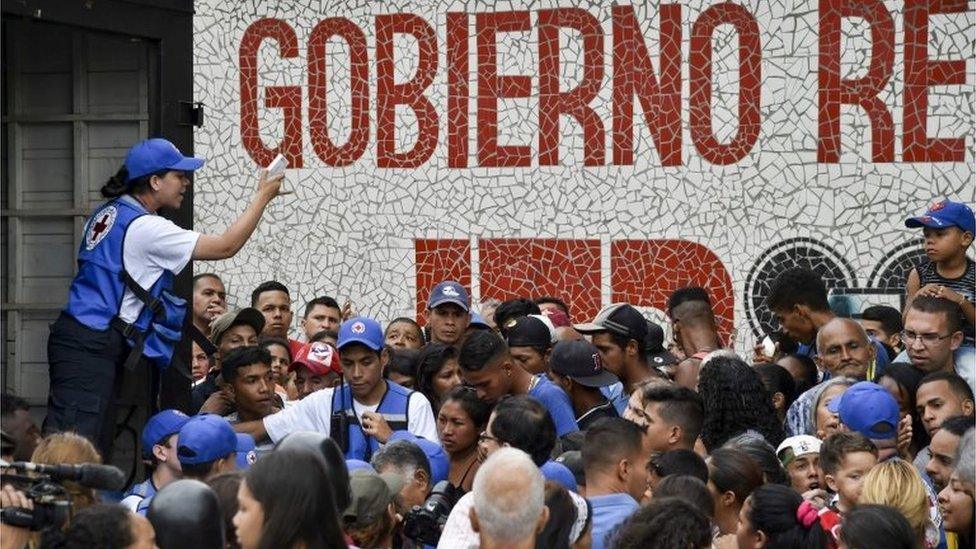
Crowds surrounded the lorries brining in the aid
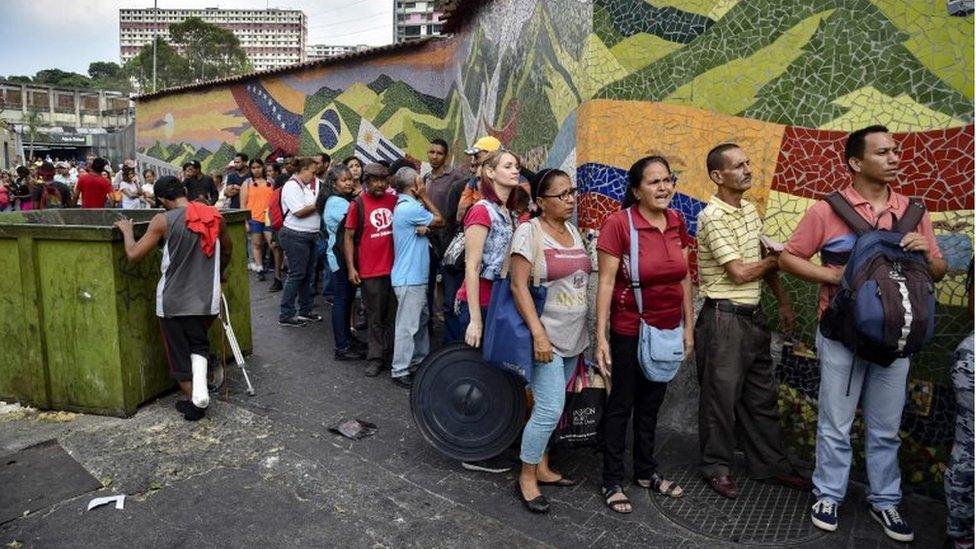
And queues quickly formed to get water purification tablets
Following the agreement reached with President Maduro, the International Committee of the Red Cross (ICRC) announced it would triple its budget for operations in Venezuela from about $9m (£6.8m) to about $24.6m.
In a briefing to the United Nations security council earlier this month, the UN humanitarian chief Mark Lowcock warned that "an estimated seven million people were in dire need of humanitarian assistance", some 25% of the population in Venezuela.
The president of the Red Cross in Venezuela, Mario Villarroel, said the shipment contained medical supplies, electricity generators and medicines.
Mr Villarroel said the aid would be distributed according to the fundamental principles of the ICRC: neutrality, impartiality and independence.
The shipment comes two months after opposition leader Juan Guaidó co-ordinated a shipment of aid from the US, Colombia and other countries that have recognised Mr Guaidó as interim leader.
Mr Guaidó, who leads the National Assembly, argues that President Maduro is a "usurper" because he was re-elected in polls that have been widely disputed.
Citing articles in the constitution which state that if the presidency is "vacant", the head of the National Assembly should take over power temporarily, Mr Guaidó declared himself acting president.
President Maduro accuses Mr Guaidó of plotting a coup against him and of trying to use aid as a cover for a US invasion.
Maduro: US 'warmongering' in order to take over Venezuela
He blocked trucks and ships trying to deliver aid from entering the country, arguing that they did not follow international protocols. This led to a stand-off at the border and in February the Venezuelan government temporarily closed its border with Colombia.
But with the humanitarian crisis worsening - 22% of children below the age of five suffer from chronic malnourishment according to the US - President Maduro said that "every [humanitarian assistance] that was legal, was very welcome".
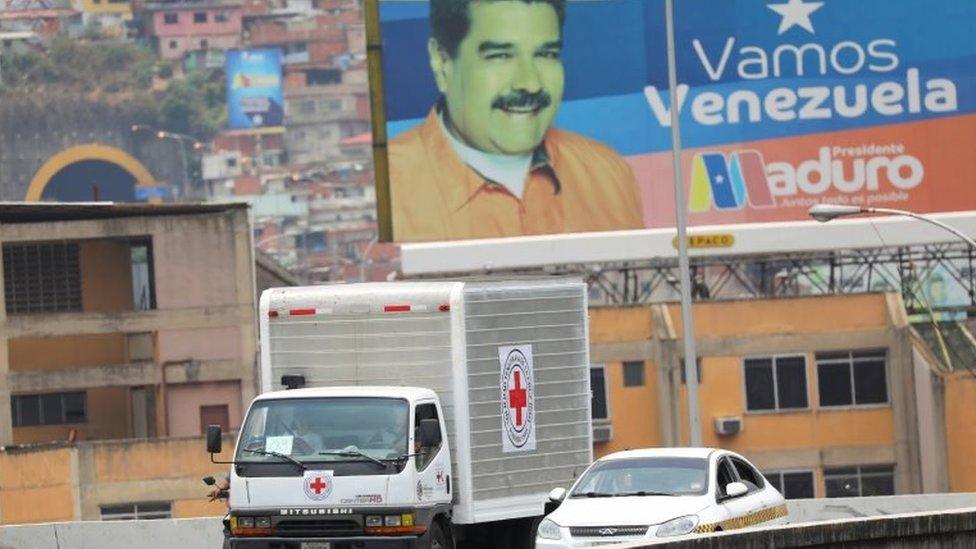
The opposition says that the ICRC's arrival proves that there is a humanitarian crisis
Mr Guaidó welcomed the arrival of the ICRC shipment, saying that "it was down to the pressure and mobilisation of everyone in the streets".
Mr Guaidó has called on Venezuelans to take to the streets in further anti-government protests on Friday to maintain the pressure on Mr Maduro's government.
- Published14 April 2019
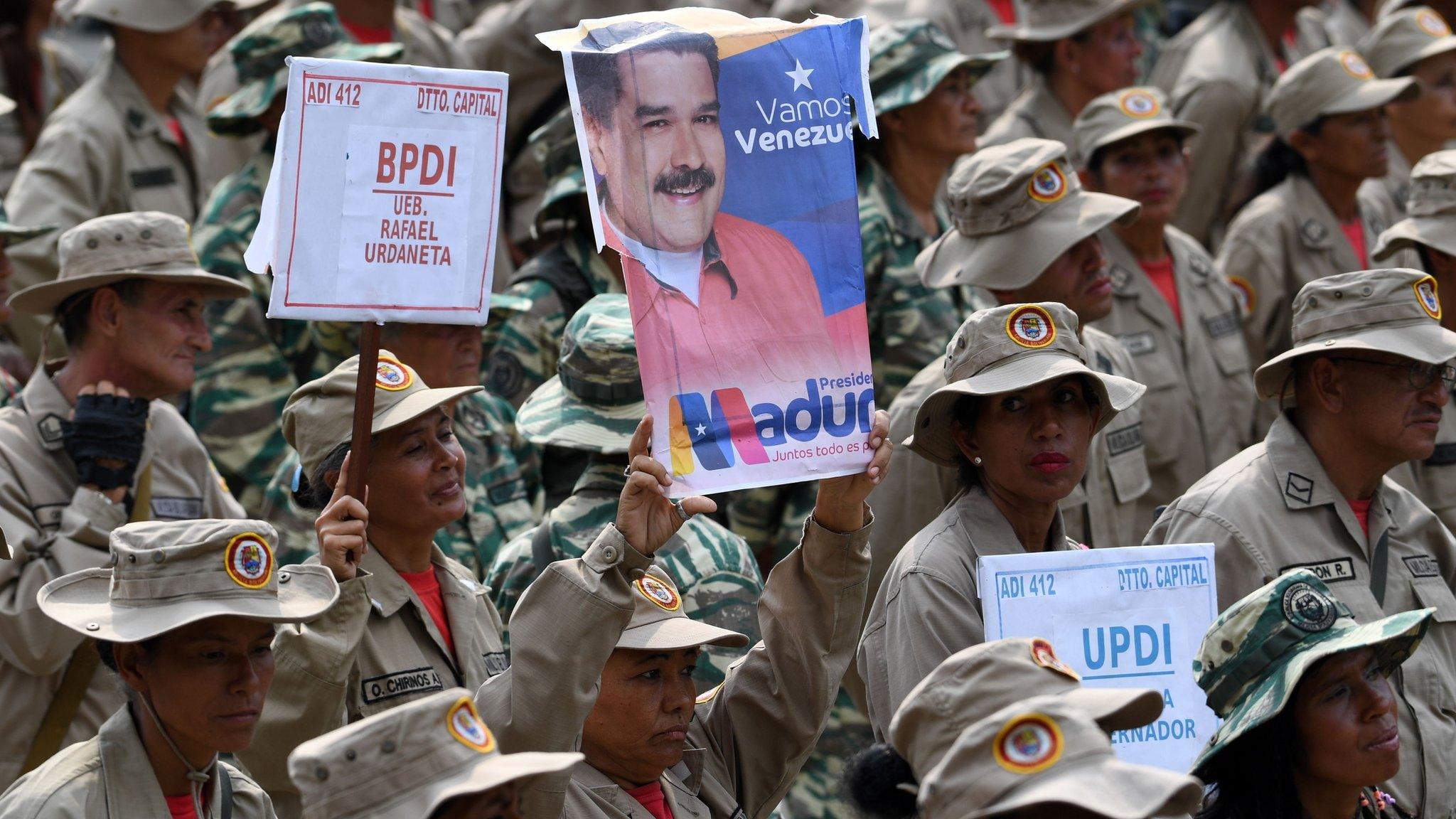
- Published3 April 2019
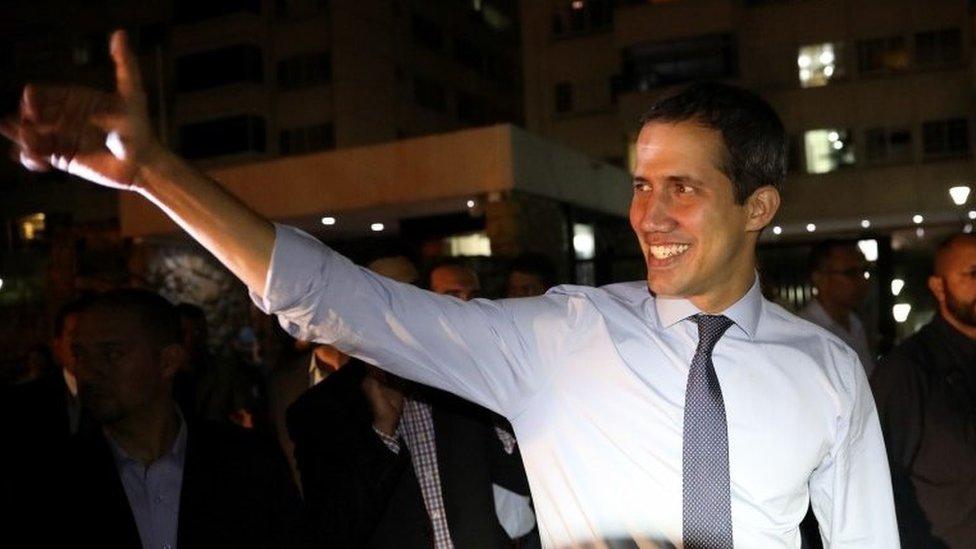
- Published3 April 2019
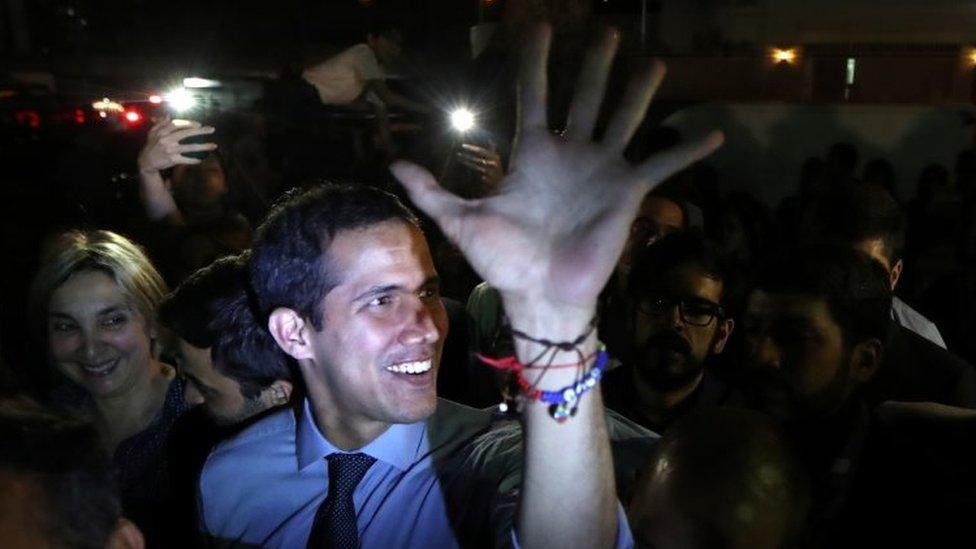
- Published30 March 2019
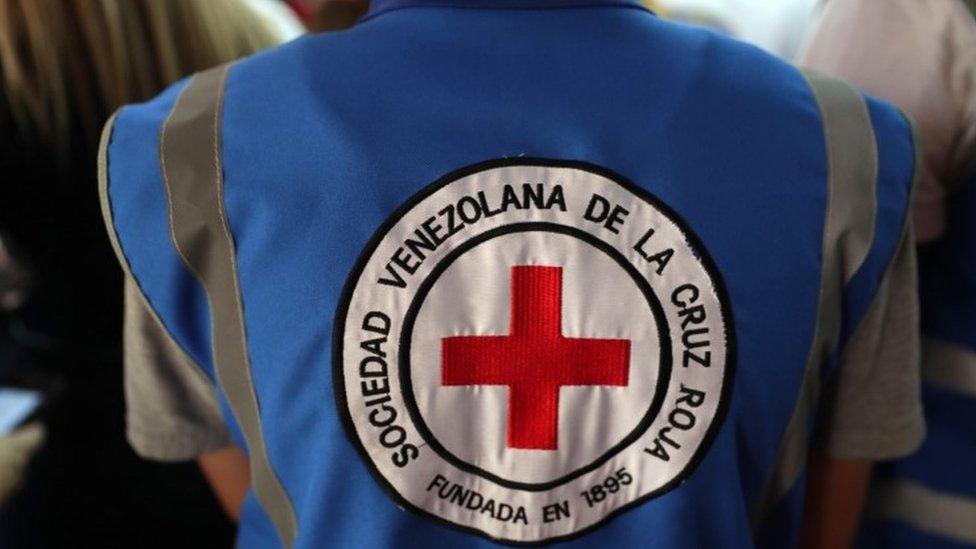
- Published29 March 2019
